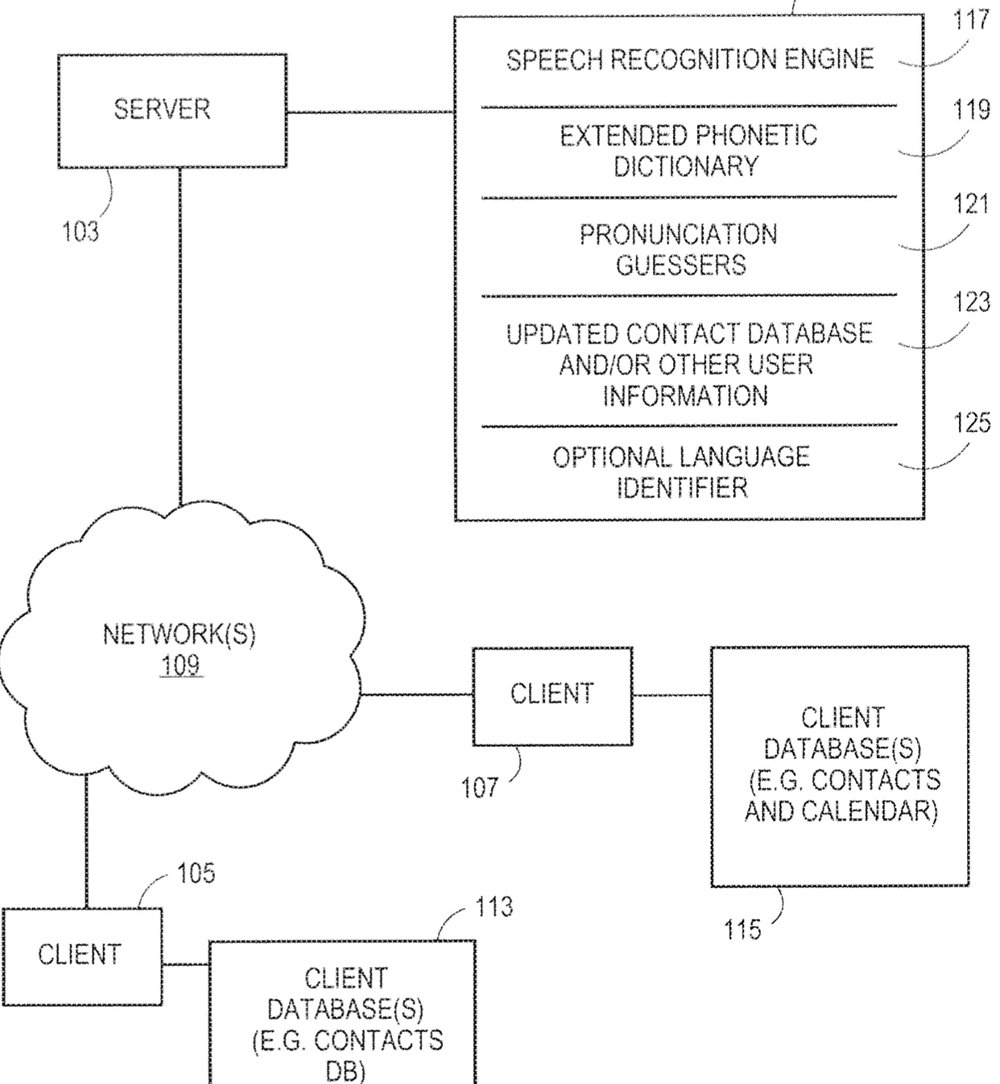Apple has been granted a patent (number 10,079,014) for a “name recognition system.” The goal is to make your Mac, iPhone, iPad, Apple Watch, and HomePod devices better at recognizing names you speak to, for example, make a phone call.

In the patent filing, Apple notes that speech recognition systems have been deployed for many years on various types of devices including desktop and laptop computer systems as well as telephone systems, such as cellular telephones and/or smartphones which include cellular telephones. One use of speech recognition systems in telephones, such as smart phones, is the use of name dialing which allows a user to speak a name in a contacts database in order to cause the telephone to initiate a telephone call.
Speech recognition systems can use phonetic dictionaries or lexicons in order to recognize spoken words. Some speech recognition systems, particularly those which are adapted to provide natural language recognition, use a large phonetic dictionary to model a large set of words. Apple says these systems can be used to recognize names in an address book or contacts database, but these systems often have difficulty with names due to the fact that the names are often not modeled in a phonetic dictionary or the names are in a different locale from the locale used in the phonetic dictionary. The tech giant wants to improve this.
Per the patent, a speech recognition system uses, in one embodiment, an extended phonetic dictionary obtained by processing words in a user’s set of databases, such as a user’s contacts database, with a set of “pronunciation guessers.” The speech recognition system can use a conventional phonetic dictionary and the extended phonetic dictionary to recognize speech inputs that are user requests to use the contacts database, for example, to make a phone call, etc.
The extended phonetic dictionary can be updated in response to changes in the contacts database. The set of pronunciation guessers can include pronunciation guessers for a plurality of locales, each locale having its own pronunciation guesser.
Of course, Apple files for — and is granted — lots of patents by the U.S. Patent & Trademark Office. Many are for inventions that never see the light of day. However, you never can tell which ones will materialize in a real product.
